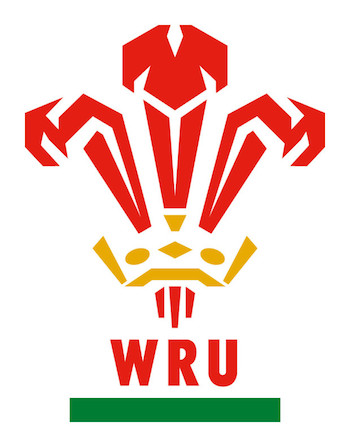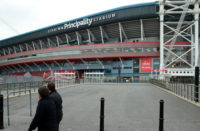Barack Obama gave a presidential news conference at the White House last week, answering some 15 questions on world affairs during a period of 49 minutes. The President presented himself for further questioning at another conference in the State Department five days later. Had the assembled reporters not been understandably preoccupied by such pressing matters as Gaza, Iraq and Ukraine, there would have been nothing to prevent one of them coming out of left-field.
“Say, Mr President, whaddya think of the conflict in Welsh rugby?”
Obama would probably have let that one fly through to the catcher, no doubt looking as perplexed as those on this side of the Atlantic trying to follow the political machinations of the Welsh national sport. You may not have got much of an answer but at least you could ask the question and that's the point.
Roger Lewis does not present himself to answer questions in such a public, old-fashioned forum. As chief executive of the Welsh Rugby Union, he last held an open news conference before Christmas, one which came to an abrupt end when someone had the temerity to ask about the row with the Regions.
Obama has given two conferences in five days and he, of course, has rather more on his plate. The Welsh dispute is decidedly parish-pump by comparison and yet the Union give the distinct impression that they have reclassified it under the Official Secrets Act.
During his lively but ultimately abortive campaign to seize the WRU chairmanship, David Moffett taunted his former employers, referring to them as “The Kremlin”. The Union hierarchy considered that to have been a low blow but not low enough, it would appear, to drive them into Press-conference mode and public dialogue.
Instead they punctuate the long silences with periodic statements, mostly to rebuke the Regions when they dare go public on their frustration at what they claim to be the constant rearranging of the goalposts.
In response to the Regions' condemnation of the protracted negotiations as “indescribably tortuous”, the Union said they were “saddened and surprised” which at least made a change from being “angry and disappointed” as they invariably are with those who refuse to toe the party line. They tend to be dismissed as “ill-informed mischief-makers”.
Why the secrecy? If President Obama can give off-the-cuff answers to questions on the Middle East, why can't chief executive Lewis do the same in respect of articulating the Union position on an issue still rearing its ugly head after ten months?
The public has a right to be informed, all the more so on an issue which has split the professional game. There was a time when the Press conference was taken for granted, as a routine platform for the Union to state their policy on all manner of topics.
The RFU initiated them way back in the amateur era on the recommendation of their newly-appointed secretary, Dudley Wood. The interview panel told him they “had a problem with the Press because they kept asking about matters we didn't want to talk about”.
The avuncular Wood suggested solving the problem at a stroke: “Why don't we tell them everything, or at least as much as we can…?”
He proved as good as his word, ensuring that the public knew where Twickenham stood on any given issue, for better or worse. When a subject was considered too sensitive for on-the-record comment, Wood rarely failed to let reporters know the RFU's stance on a non-attributable basis.
While history will judge Wood for taking a Canute-like stance over the rising tide of professionalism in the early Nineties, nobody ever criticised him for ducking out of his monthly public grilling. Post-professionalism, the RFU maintained their regular conferences throughout a tempestuous relationship with their Premiership clubs.
Francis Baron, their often abrasive chief executive, and the then chairman, Martin Thomas, may occasionally have pleaded the Fifth Amendment but at least they were there to be questioned. Their counterparts running the WRU, Lewis and Pickering, appear to move to the beat of a different drum.
Since their last Press conference took place on December 13, 2013, the WRU have restricted themselves to a series of email statements and the very occasional BBC Wales interview while studiously avoiding the sort of all-embracing conference taken for granted at Twickenham.
Every now and then the RFU would end up being castigated by the same people who asked the questions but they kept fronting up. The WRU, for reasons best known to themselves, have chosen not to over the last eight months.
There is certainly no dialogue with the few journalists, admittedly very few, who dare take them to task. They are liable to be warned that the Union's lawyers will be watching what they write, and I speak from personal experience of such intimidation.
Unlike Obama, Lewis chooses not to bother with the open Press conferences. The longer that goes on, the more explaining will have to be done, not so much over Gerald Davies' damning indictment of the Union leadership at the EGM but over why the governing body has been unable to govern a way forward with its four professional teams.
*This article was first published in The Rugby Paper on August 10.



























